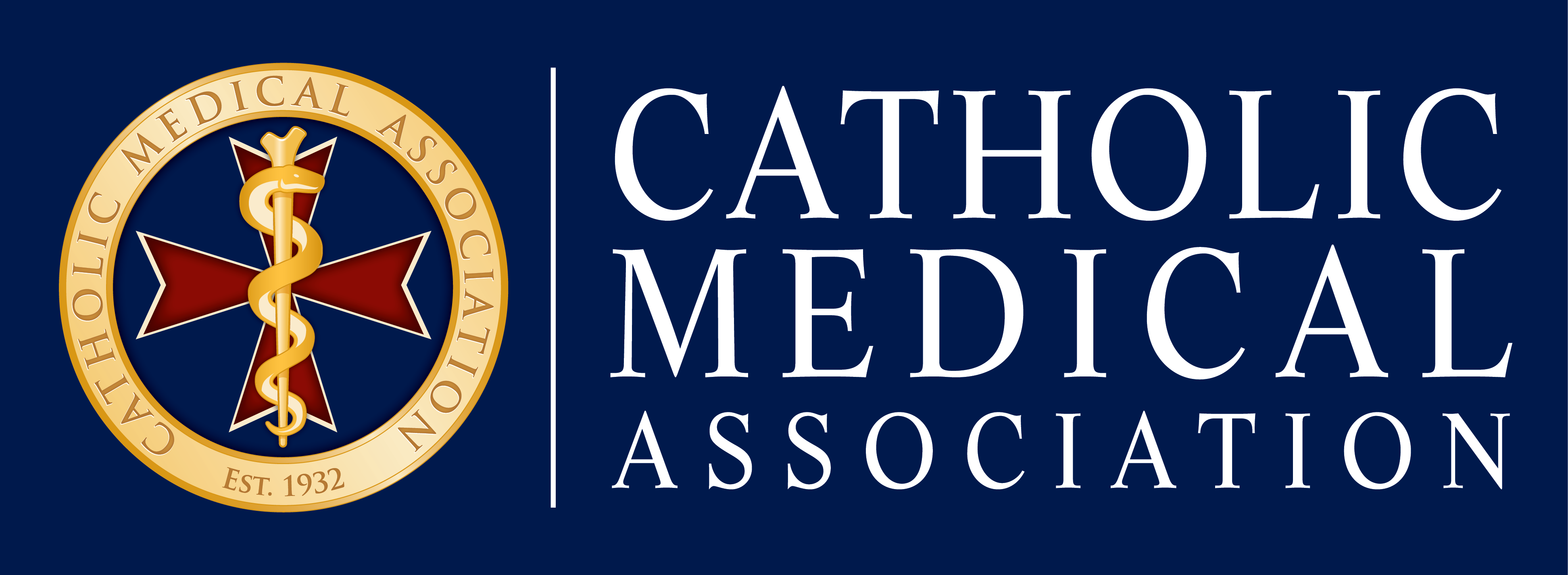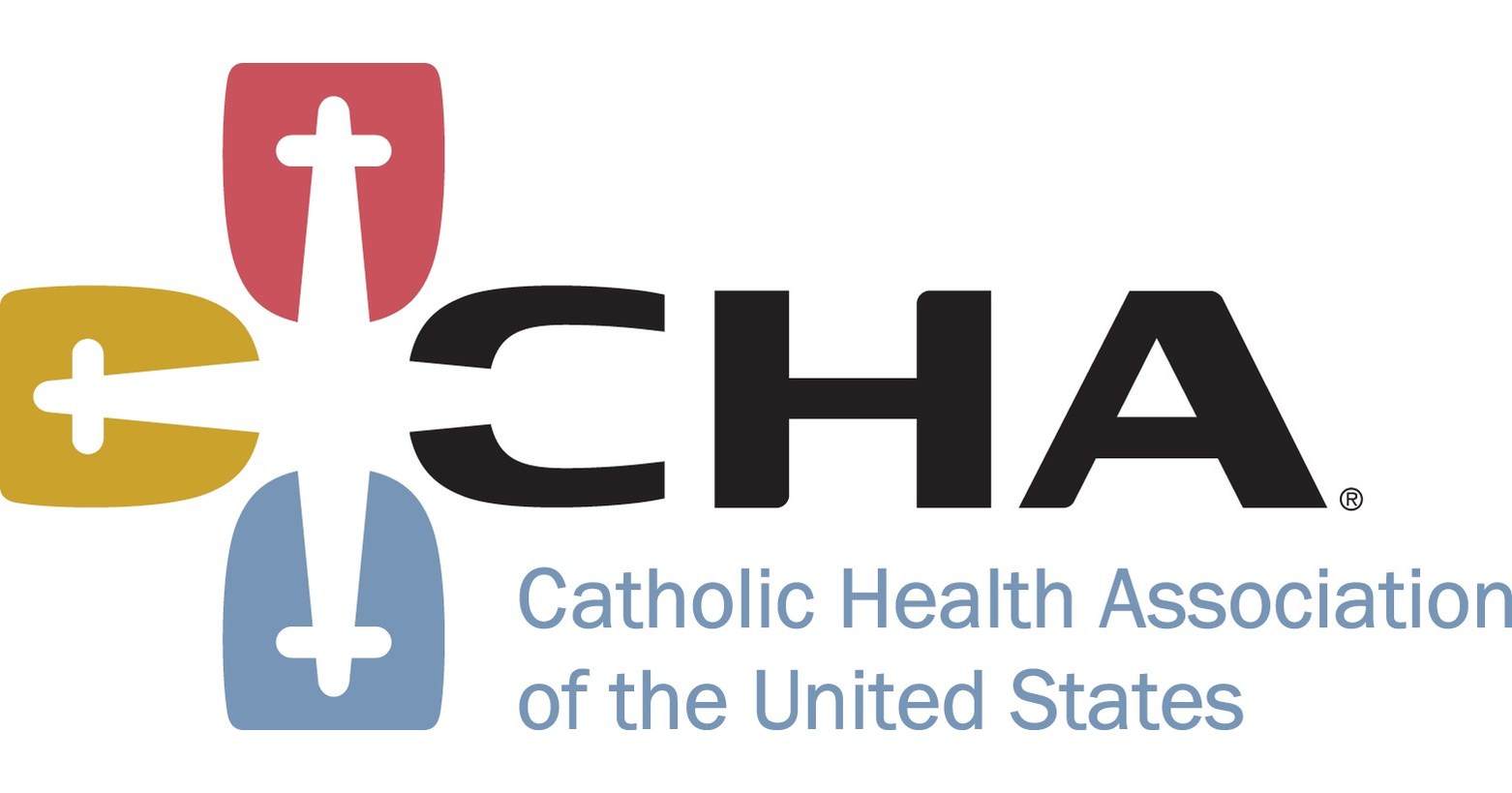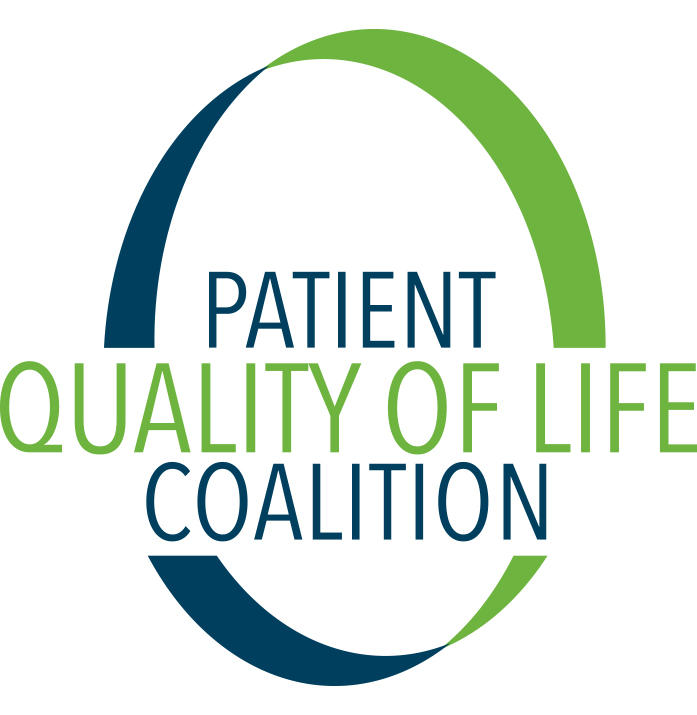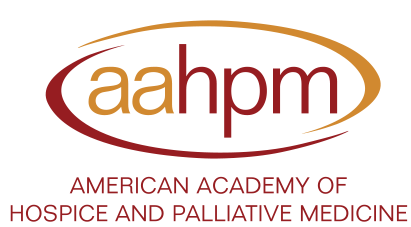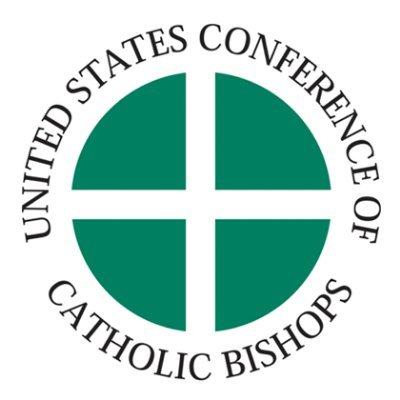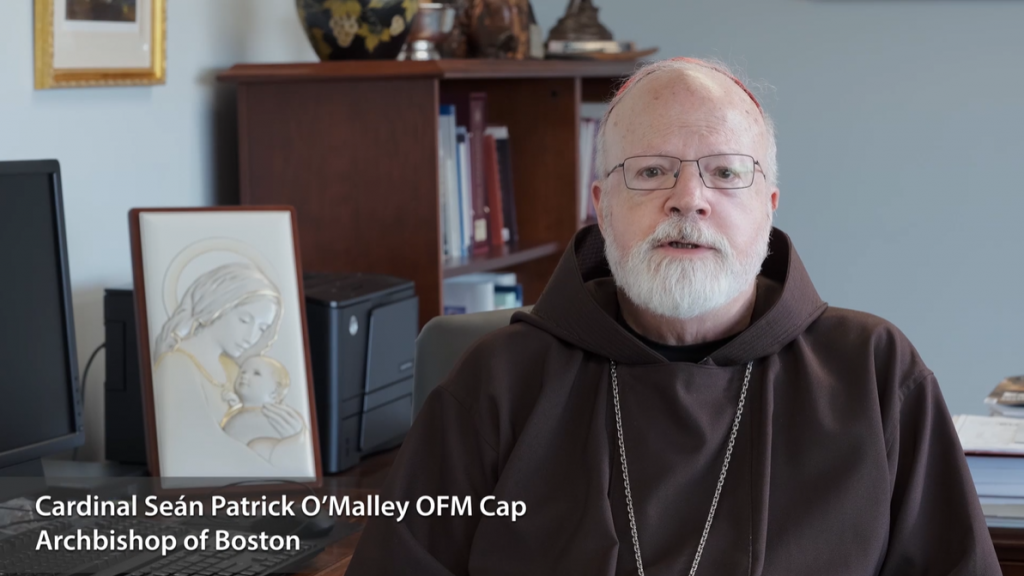Home > Offices > Respect Life Ministries > Respect Life Issues > Palliative Care
Palliative Care
“We seek to do more than merely cure a physical illness. Like Jesus, we heal the whole person. We care for people in such a way that, whether or not we can physically cure their illness, they find strength and comfort in knowing God’s abiding love for them, despite their experience of chaos.” ~Cardinal Joseph Bernadin
Check out our Being Pro Life Episode: Palliative Care: It’s Not Just for End of Life. Click the video or one of the icons to the left to watch, listen, and read.
General Information

Chaplains and social workers connected to a palliative care service can provide spiritual and emotional support to patients and families to help accept and cope with the changes and stages of illness. A palliative care team can help determine if care is provided in the proper setting with the most appropriate services for the patient, uplifting the dignity of the patient and providing support for family caregivers. A palliative care team also may provide services to alleviate pain and other symptoms.
Church Documents
“Christ’s compassion toward the sick and his many healings of every kind of infirmity are a resplendent sign that “God has visited his people”104 and that the Kingdom of God is close at hand. Jesus has the power not only to heal, but also to forgive sins; he has come to heal the whole man, soul and body; he is the physician the sick have need of. His compassion toward all who suffer goes so far that he identifies himself with them: “I was sick and you visited me.” His preferential love for the sick has not ceased through the centuries to draw the very special attention of Christians toward all those who suffer in body and soul. It is the source of tireless efforts to comfort them.” ~ Catechism of the Catholic Church, 1503
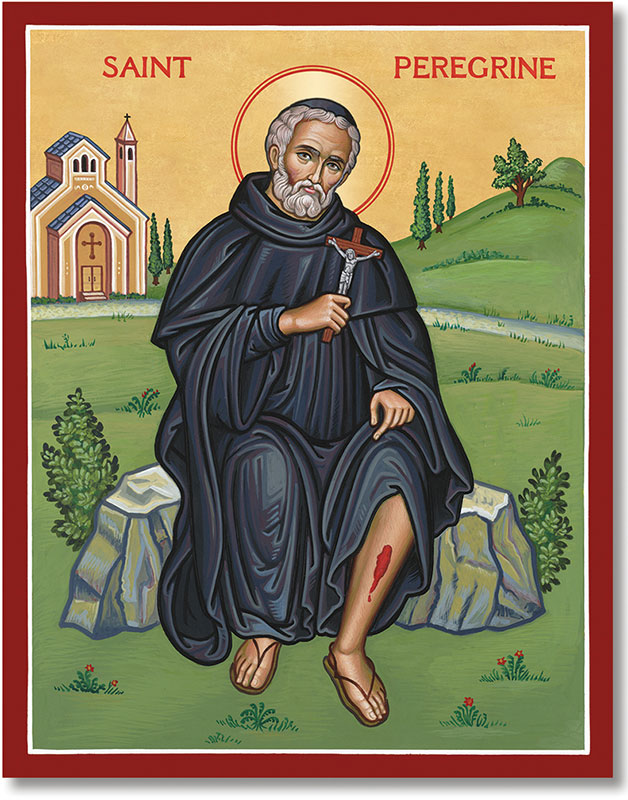
“…the term permanent vegetative state has been coined to indicate the condition of those patients whose “vegetative state” continues for over a year… However, we must neither forget nor underestimate that there are well-documented cases of at least partial recovery even after many years; we can thus state that medical science, up until now, is still unable to predict with certainty who among patients in this condition will recover and who will not.”
“Medicine is always at the service of life. Even when medical treatment is unable to defeat a serious pathology, all its possibilities are directed to the alleviation of suffering. Working enthusiastically to help the patient in every situation means being aware of the inalienable dignity of every human being, even in the extreme conditions of terminal illness. “
“Here I would like to encourage the efforts of those who work daily to ensure that the incurably and terminally ill, together with their families, receive adequate and loving care… Many such individuals – health care professionals, pastoral agents and volunteers – and institutions throughout the world are tirelessly serving the sick, in hospitals and in palliative care units, on city streets, in housing projects and parishes.”
” And even if we know that we cannot always guarantee healing or a cure, we can and must always care for the living, without ourselves shortening their life, but also without futilely resisting their death. This approach is reflected in palliative care, which is proving most important in our culture, as it opposes what makes death most terrifying and unwelcome—pain and loneliness.”

Organizations & Webpages
Below are organizations, along with their webpages, that serve as wonderful resources for parishes, families and individuals who would like to learn more about the topic of palliative care from the perspective of the Catholic Church.
The Catholic Medical Association, the United States’ largest association of Catholic individuals in health care, exists to advance and uphold a Catholic vision of the dignity of every human person, including persons with serious and life-threatening illness, through the science and practice of medicine.
“Palliative care accomplishes something equally important: it values the person. I exhort all those who, in various ways, are involved in the field of palliative care, to practice this task keeping the spirit of service intact and remembering that all medical knowledge is truly science, in its noblest significance, only if used as aid in view of the good of man, a good which is never accomplished “against” the life and dignity of man.” – Pope Francis
The Catholic Medical Association, the United States’ largest association of Catholic individuals in health care, exists to advance and uphold a Catholic vision of the dignity of every human person, including persons with serious and life-threatening illness, through the science and practice of medicine.
Catholic health care is a ministry of the Catholic Church continuing Jesus’ mission of love and healing in the world today. Comprised of more than 600 hospitals and 1,600 long-term care and other health facilities in all 50 states, the Catholic health ministry is the largest group of nonprofit health care providers in the nation. At the national level, these organizations join together in the Catholic Health Association of the United States. In CHA, the ministry raises a collective passionate voice for compassionate care. This website contains a number of useful webinars for both professionals and caregivers.
The National Association of Catholic Chaplains advocates for the profession of spiritual care and educates, certifies, and supports chaplains, clinical pastoral educators, and all members who continue the healing ministry of Jesus in the name of the Church.
Getpalliativecare.org is a website providing clear, comprehensive palliative care information for people living with a serious illness. Key features of the site include a Palliative Care Provider Directory, a definition of palliative care, and detailed descriptions of what palliative care does and how to get it. It also provides an interactive quiz to assist you in deciding whether palliative care might be right for you or a loved one. The site is provided by the Center to Advance Palliative Care (CAPC).
With a unified voice, the Supportive Care Coalition advances palliative care excellence in Catholic health care settings through education, advocacy, mission and ethical integration as well as the promotion of spiritual care in palliative care.
This website is packed with resources including webinars regarding palliative care and caring for the caregiver.
Mission: Work together to present a united voice to the public and policy makers in order to improve the care of people with serious or life-limiting illnesses.
Vision: All patients, families and caregivers who need it will have access to quality hospice and palliative care.
The Patient Quality of Life Coalition was formed to advance the interests of patients and families facing serious illness, including survivors. The Coalition has developed a consensus-based agenda aimed at promoting public policy that will improve and expand access to high-quality palliative care.
The Coalition includes more than 40 nongovernmental organizations dedicated to improving quality of care and quality of life for these adults and children.
Media Resources
In our media-driven world, it is imperative to use media resources to work to spread the Gospel of Life. Below are a variety of media resources that address palliative care.
Articles & Podcasts
This article is part of the Being Pro Life Campaign and features personal stories about palliative care. This campaign includes an article, video, and podcast that effectively convey what it means to have a consistent ethic of life. For the accompanying podcast episodes click the title below:
Part 1- Denise Hess Part 2- Katalin Vogt Part 3- Jill Part 4- Dr. Tim Jessick
What is palliative and hospice care and what does Catholic social teaching say about it? What conversations do clinicians need to have with their patients and each other about end of life issues? These and other questions are discussed by a panel of experts from CHA, the Archdiocese of Boston, Washington University, Mercy and St. Louis University in this podcast episode.
“Palliative care is a relatively new medical specialty, and more must be done to ensure patients and providers understand its benefits and that an adequate, appropriately trained workforce is available to provide the pain and symptom management, intensive communication and level of care coordination that addresses the episodic and long-term nature of serious and complex chronic illness.”
“Vulnerability in palliative care is a cumulative experience. The lack of physical and psychological control, spiritual suffering, or cognitive limitations often result in a spiral of ancillary vulnerabilities, not only in patients facing the end of life but also in family and friends. Healthcare professionals also face vulnerabilities accumulating from repeated exposures to dying. Among the team of clinicians, spiritual care providers are most exposed to the intensity of emotions and distresses raining from these cumulative vulnerabilities.”
“Palliative care is a relatively new medical specialty, and more must be done to ensure patients and providers understand its benefits and that an adequate, appropriately trained workforce is available to provide the pain and symptom management, intensive communication and level of care coordination that addresses the episodic and long-term nature of serious and complex chronic illness.”
Videos & Movies
An excellent way to help people to understand an issue is to present them with a story. The below webinars, videos, and documentaries are great resources for discussion on the topic of palliative care.
Many people still associate palliative care with care in the terminal stage of cancer, and patients with cancer remain more likely to receive it than those with other illnesses. It is often delayed until the last weeks or days of life once the illness is advanced and disease focused treatments are no longer effective. However, late palliative care is a missed opportunity to do better for patients, families, and health services.
David, a devoted family man, is a colorectal cancer survivor who suffered from complications as a result of his treatment. After repeated visits to the emergency room to deal with the pain, David asked for palliative care. His primary goal was to remain at home to enjoy quality time with his family. David’s palliative care team helps manage his pain but also provides psycho-social support for him and his family. Thanks to his palliative care treatment, David is now able to enjoy life at home as he continues his recovery. For more palliative care videos, visit the Get Palliative Care YouTube Channel.
The Archdiocese of Boston has some fantastic webinars on their website complete with accompanying materials. The video series to the left is entitled A Catholic Approach to Palliative Care and is offered with discussion questions for independent or group catechesis.
Printable Resources
These resources below address the issue of Palliative Care and promote a consistent ethic of life. You can download and print all of the resources for your own personal use.
- Palliative Care
| Title | Description | Hits | Date added | Download |
|---|---|---|---|---|
| 24 Questions You Should Ask your Hospice | 1181 | 10-21-2020 | DownloadPreview | |
| Catholic Perspective on Palliative Care | 1201 | 10-14-2020 | DownloadPreview | |
| Killing the Pain, Not the Patient | 1164 | 10-14-2020 | DownloadPreview | |
| Palliative Care and Hospice Education and Training Act | 1216 | 10-14-2020 | DownloadPreview | |
| Palliative and Hospice Care- Caring Even When We Cannot Cure | 1351 | 10-20-2020 | DownloadPreview | |
| Prayer for those in Palliative Care and Hospice Services | 1191 | 10-20-2020 | DownloadPreview | |
| Teachings of the Catholic Church- Caring for People at the End of Life | 1320 | 10-20-2020 | DownloadPreview | |
| White Book for Global Palliative Care Advocacy | 1464 | 10-21-2020 | DownloadPreview |
Get Involved
To support those who are critically ill in our community, it is essential for those who feel called to get involved. Whether that is through working towards advocacy, awareness, service or prayer. Below are a list of ways to get involved.
Advocacy & Awareness
In order to foster a better awareness of care and support for our brothers and sisters in Christ who are critically ill and suffering, there are a number of things that we can do to promote a culture of care and support in our parishes. Beyond ministry to the homebound, we can explore ways to better support caregivers in the endless task of caring for an ailing loved one.
Below is an organization that has a specific call to action website devoted to palliative care.
Because you are the most credible and influential voice for the specialty, the Academy has created the Legislative Action Center to make connecting with your representatives as simple and effective as possible. Use the Legislative Action Center to respond to AAHPM’s Action Alerts, review the legislation that AAHPM is monitoring, or use communication tools to connect with your elected officials about any issue you want.
Prayer

HEALER OF SOULS AND COMFORTER OF THE WEARY, HELP TO LIGHTEN THE BURDEN OF FAMILIES WHO ARE CARING FOR THEIR SICK LOVED ONES.
Accompany them on their journey and ease their anxiety and fears. Surround them with the love and strength of others, so they may experience the healing presence of the communion of saints. We ask this through the intercession of Our Lady of Lourdes and in the name of your Son, Jesus and the Holy Spirit, now and forever. AMEN.
Service



